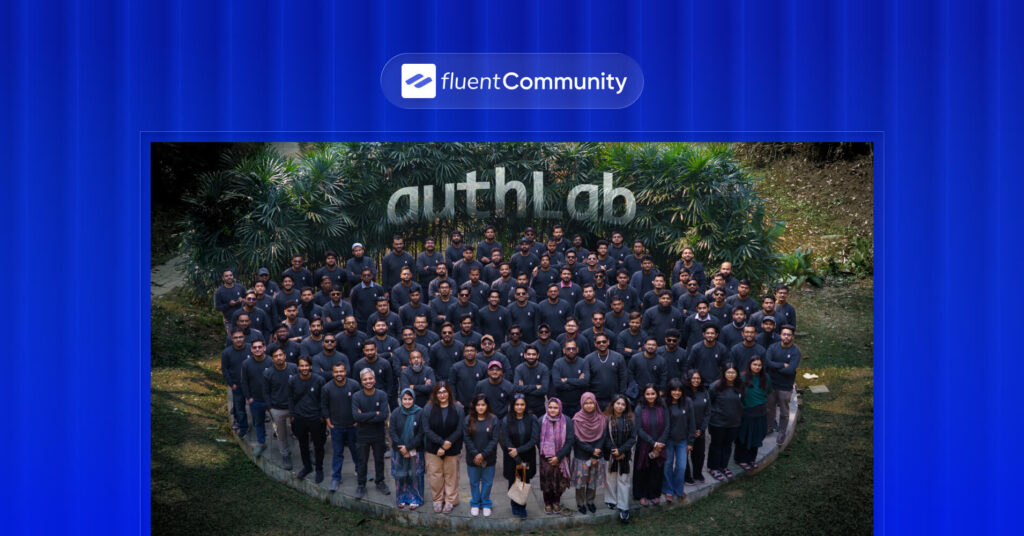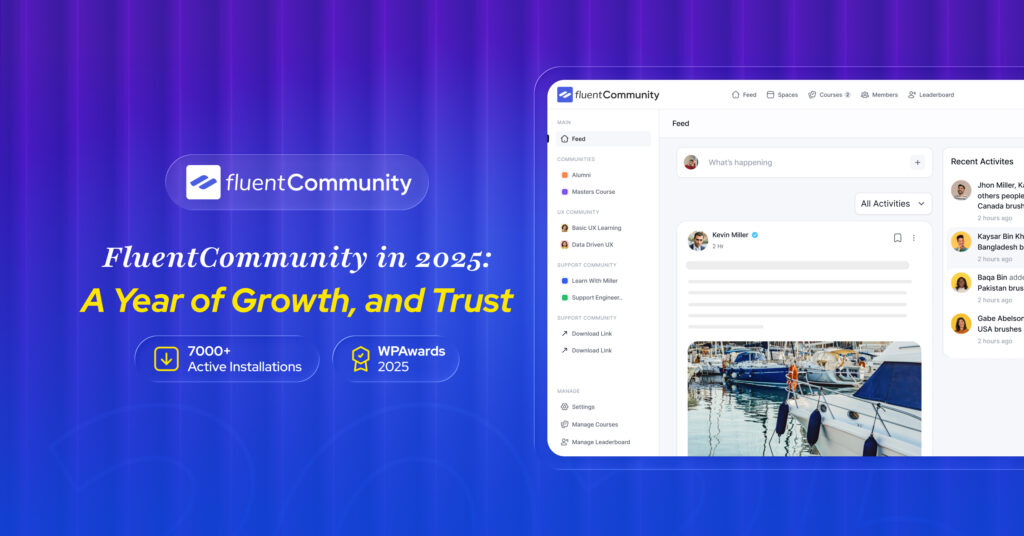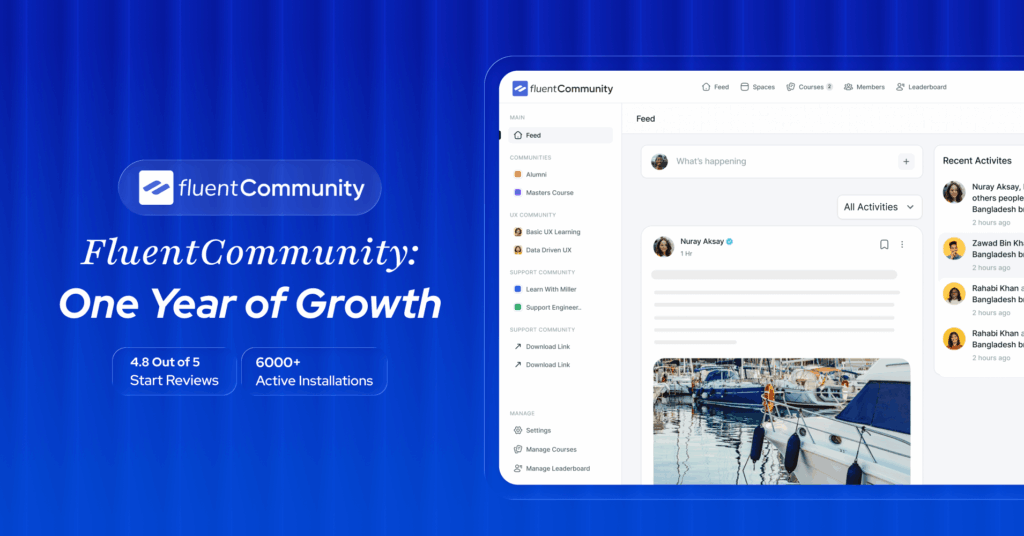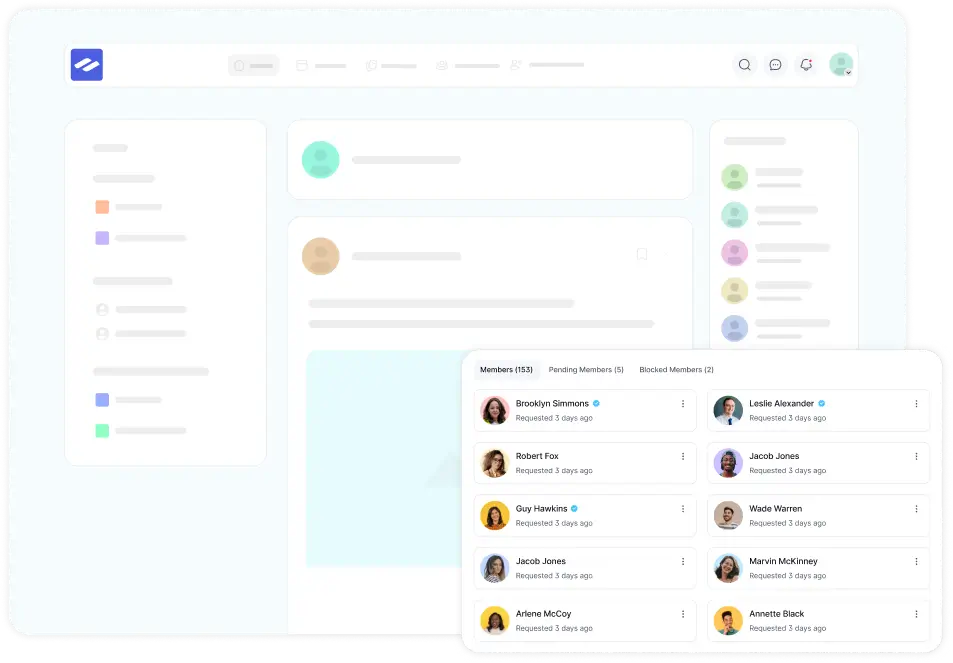
Table of Content
Subscribe To Get
WordPress Guides, Tips, and Tutorials
Picture this! You’re sitting at your computer, coffee in hand, ready to learn that skill you’ve been putting off finally. Maybe it’s web design, Python programming, or even starting your podcast. You head straight to Udemy. After all, everyone talks about it, right?
But then reality hits. You scroll through outdated courses from 2018, wonder if that instructor with 2.3 stars knows what they’re talking about, and realize that “certificate of completion” won’t exactly wow your future boss.
Sound familiar? You’re not alone.
If you’re nodding along, or if you’re someone who creates courses and feels stuck with Udemy’s limitations, I’ve got good news. The online learning world has evolved big time, and some fantastic alternatives might be exactly what you’re looking for.
Let me walk you through 7 platforms that are making waves in 2025. Each with its personality and strengths. But before that, let’s see some more details and limitations of Udemy.
What is Udemy for?
Udemy is the go-to place where millions of people learn everything from Photoshop tricks to Python coding. What started as a simple idea has grown into something pretty amazing: a platform where over 49 million learners (as of late 2021) have picked up new skills that actually matter.
The best part? Most courses won’t break the bank. We’re talking under $20 for many of them, and once you buy a course, it’s yours forever. No monthly subscriptions eating away at your budget, no pressure to finish before your access expires. Just you, the content, and all the time you need.
Why do people love learning on Udemy?
Life gets crazy, right? Between work, family, and everything else, finding time to learn something new feels impossible. That’s where Udemy shines.
Think about it. Maybe you’re good at social media marketing, or you’ve mastered Excel in ways that would make your coworkers jealous. Why not turn that expertise into extra income? Udemy handles all the technical stuff (hosting, payment processing, marketing support), so you can focus on what you do best.
The platform has created this beautiful ecosystem where knowledge flows both ways – students get affordable, practical education, and instructors get a chance to build something meaningful while earning money. It’s a win-win that’s helped make quality education more accessible to everyone.
Limitations of Udemy
I’d love to tell you Udemy is flawless, but that wouldn’t be honest. Like that friend who’s great most of the time but has some quirks you need to know about, Udemy comes with its own set of challenges.
The biggest issue? Well, since literally anyone can create a course, you’re going to run into some real duds. I’m talking about courses that look promising but turn out to be someone reading PowerPoint slides in their bedroom with terrible audio. You’ll find yourself scrolling through reviews like you’re doing detective work, trying to figure out which courses are worth your time.
The reality checklist
Those certificates don’t carry much weight: Sure, you’ll get a nice-looking completion certificate, but don’t expect HR departments or universities to get excited about it. It’s more like a personal “I did this!” trophy than something that’ll land you a job.
You’re pretty much on your own: Don’t expect to shoot a quick message to your instructor and get personalized feedback. Most of the time, you’re learning in isolation, which can be tough when you hit a roadblock or need clarification on something confusing.
It can feel like a grab bag of random knowledge: Unlike a structured degree program, where courses build on each other, Udemy courses exist in their little bubbles. You might end up with bits and pieces of knowledge, but struggle to see how it all fits together.
Some courses are stuck in 2018: You know that sinking feeling when you’re learning about “the latest” social media strategies, only to realize the instructor is still talking about Google+ like it’s relevant? Yeah, that happens more than it should.
The good stuff usually costs money: While there are free courses, the ones that are comprehensive and well-made typically come with a price tag. Those $10-20 courses can add up quickly if you’re on a learning spree.
No career guidance included: Finishing a course gives you knowledge, but you’re on your own when it comes to actually using it to advance your career or find a job.
The creator side gets complicated too
If you’re thinking about teaching on Udemy, here’s the thing, you’re not building your own business. You’re more like a tenant in Udemy’s mall. They control the pricing, the promotions, and you only get a slice of what students pay. Plus, your course has to look and feel like every other Udemy course. Want to add your branding or create a unique experience? Not happening.
The truth is, Udemy works great as a starting point, whether you’re learning or teaching. But calling it a “beginners only” platform might be a bit harsh. It’s more like training wheels for the online education world. Perfectly fine for getting started, but you might outgrow it as your needs become more sophisticated.
How do online courses work?
Online courses are a simple and flexible way to learn new skills using the internet. These courses are created by experts, teachers, or professionals and shared through online platforms like Udemy, Coursera, or Skillshare. They are made up of video lessons, reading materials, quizzes, and sometimes assignments. You can watch the lessons anytime, which means you can learn at your own pace and from anywhere.
To get started, you need to sign up for a platform and choose a course. Some courses are free, while others may require a one-time payment or a monthly fee. After enrolling, you’ll follow a series of lessons just like in a classroom, but online. Many courses offer certificates when you finish all the lessons and pass the quizzes. Here are some advantages:
- Learn anytime, anywhere: You can study at your own pace and on your schedule from home, a coffee shop, or even while traveling.
- Affordable options: Many online courses are low-cost or even free, making education more affordable than college or in-person classes.
- Wide variety of topics: Whether you want to learn coding, design, cooking, or business skills, there’s likely an online course for it.
- Self-paced learning: Most online courses let you pause, replay, or skip lessons, perfect for those who need extra time to understand.
- Certificates and career growth: Many platforms offer certificates, which can boost your resume or help you start a new career.
- Comfort and privacy: You can learn in your own space without pressure, which is great for shy or beginner learners.
- Updated content: Online courses are often updated faster than textbooks or school curriculumns.
In addition, some platforms give you access to instructors or peer communities for help and discussion. This makes learning more interactive. Also, many courses are mobile-friendly, so you can learn using your phone or tablet.
Overall, online courses work by giving you access to quality education without needing to go to a physical classroom. Whether you want to learn coding, cooking, marketing, or even photography, there’s a course out there for you.
Best Udemy alternatives for 2025
With so many online learning platforms out there, picking the right alternative to Udemy can feel a little overwhelming. Don’t worry, you’re not alone. To make things easier, we’ve done the research and handpicked 7 of the best Udemy alternatives to explore in 2025. Each one has something unique to offer, whether you’re here to learn something new or ready to share your knowledge with others. Let’s find in and get the one that fits your goals best.
FluentCommunity

FluentCommunity is a WordPress-based platform that helps you build and sell online courses easily. It’s made for creators, educators, and business owners who want full control over their learning community. With FluentCommunity, you can create courses with videos, lessons, and quizzes, all inside your website.
It also allows you to build member-only Spaces, run real-time chat, and add polls or surveys to collect feedback. One of the best features is that everything stays on your website, so you own your content and audience. You can manage students, control access, and even give certificates when a course is complete.
It works well with other popular WordPress tools like Fluent Forms, FluentCRM, and Paymattic, making course selling and email marketing easy. Whether you’re starting small or growing a full learning platform, FluentCommunity gives you the tools to do both. It’s simple to use, flexible, and built to grow with your needs.
Pricing
FluentCommunity is part of the WPManageNinja plugin family. It starts at $129/year for a single site license. This includes all core features. You can use it on unlimited students with no extra fees. Lifetime pricing and bundle options are also available.
FluentCommunity is a complete community platform designed for businesses. Download now to create and manage your community.
Coursera

Coursera is a popular online learning platform that works with top universities and companies like Google, Yale, and IBM. It offers thousands of courses on subjects like business, technology, health, marketing, and more. The courses include video lessons, quizzes, reading materials, and sometimes real-world projects.
It’s best for people who want high-quality learning and certificates that are recognized by employers. Whether you’re a student, job seeker, or business owner, Coursera can help you build useful skills from home.
Many of them are created and taught by college professors or industry professionals. Coursera gives you the chance to learn at your own pace, but some courses follow a schedule with weekly goals. You can also join Specializations or Professional Certificates, which are collections of related courses designed to build deeper skills.
Some courses offer peer-reviewed assignments and discussion forums, so you can learn with others. The platform is easy to use and available on both desktop and mobile devices, so you can learn anytime, anywhere.
Price
Coursera offers many free courses, but paid options start at $49 per course for certificates. One-time fees typically range $39–$99, depending on course length and provider. For broader access, Coursera Plus costs $59/month or $399/year and includes unlimited access to over 7,000 courses, Specializations, and certificates.
Skillshare

Skillshare is a well-known online learning platform focused on creativity, freelancing, and personal development. It offers thousands of short, easy-to-follow video classes on topics like graphic design, illustration, writing, photography, web development, and more. Unlike academic platforms, Skillshare is more casual and beginner-friendly.
Classes are project-based, which means you’ll create something as you learn, like a logo, blog post, or website. You can also leave comments, join class discussions, and share your work with others. Courses are taught by experienced creators and industry professionals who share practical tips and real-world knowledge.
One of Skillshare’s best features is that it’s self-paced. You can learn anytime, from anywhere, using your phone or computer. Whether you want to build a new skill or explore a hobby, Skillshare gives you the tools to get started quickly and easily.
Price
Skillshare offers a 1-month free trial. After that, the premium membership costs $32/month or $168/year (about $14/month when billed annually). All classes are included in this subscription, with no extra fees per course. Occasionally, discounts or extended trials are available for new users.
edX

edX is an online learning platform that offers university-style education to anyone with internet access. Originally, it was founded by Harvard and MIT, and today, it includes courses from many top universities and leading companies. With edX, you can learn subjects like computer science, business, data analysis, health, and languages. Courses are designed by experts and include video lectures, reading materials, quizzes, and sometimes real-world projects.
Depending on your schedule, you can learn at your own pace or join instructor-led classes. In addition to single courses, edX offers professional certificates, MicroMasters, and even full online degrees. To support interactive learning, it also includes discussion forums and community spaces.
A unique benefit of edX is the free audit option. You can explore most course content without paying. Overall, edX is known for its academic quality and is trusted by both employers and institutions. Whether you’re learning for personal growth or career advancement, edX provides a structured, high-quality path with flexible options for all types of learners.
Pricing
You can audit most edX courses for free. If you want a verified certificate, prices range from $50 to $300. More advanced programs like MicroMasters or online degrees can cost from a few hundred to several thousand dollars, depending on the program.
Pluralsight

Pluralsight is an online learning platform mainly focused on technology and IT skills. It offers thousands of expert-led courses on topics like software development, cybersecurity, data science, cloud computing, DevOps, and machine learning.
These courses are designed for both beginners and professionals looking to grow their tech skills. One of Pluralsight’s standout features is its Skill IQ and Role IQ tools, which help you test your knowledge and suggest the right learning path. Courses are updated regularly, so you’re always learning the most current information. You can also take hands-on labs, practice exams, and real-world projects to sharpen your skills.
Furthermore, Pluralsight offers learning paths and assessments, making it easy to follow a structured journey. You can watch lessons anytime using your computer or mobile device. Whether you’re preparing for a tech job or upskilling at work, Pluralsight is a reliable and professional learning platform.
Pricing
Pluralsight offers a 10-day free trial. After that, pricing starts at $29/month or $299/year for the Standard plan. The Premium plan costs $45/month or $449/year, which includes certification practice exams, interactive projects, and hands-on labs for deeper learning.
LinkedIn Learning

LinkedIn Learning is an online platform that offers video-based courses on business, technology, and creative skills. It was formerly known as Lynda.com and is now part of LinkedIn. The platform provides over 20,000 expert-led courses covering topics like graphic design, marketing, leadership, software development, and more.
One helpful feature is that you can get personalized course suggestions based on your job role or interests. You can also add completed courses and certificates directly to your LinkedIn profile, which helps showcase your skills to potential employers. Most courses include quizzes, exercise files, and learning paths to help guide your progress.
Additionally, you can watch videos offline using the mobile app. Whether you’re looking to grow in your career, switch jobs, or simply learn something new, LinkedIn Learning offers flexible and easy-to-follow courses for all levels. Overall, it’s a great option for professionals who want to keep learning.
Pricing
LinkedIn Learning offers a 1-month free trial. After that, the subscription costs $39.99/month or $239.88/year (about $20/month when billed annually). This includes unlimited access to all courses, certificates, and offline learning features. Some universities and companies also offer it for free to students or employees.
FutureLearn

FutureLearn is an online learning platform that offers courses from well-known universities and institutions around the world. It covers a wide range of subjects such as business, teaching, psychology, healthcare, and digital skills. Most courses are designed by university professors and industry experts, making the content trustworthy and easy to follow.
One great feature is the discussion sections where you can talk with other learners and share ideas. The platform also offers short courses, ExpertTracks, Microcredentials, and even full online degrees. You can learn at your own pace or follow a weekly schedule, depending on the course. Many lessons include videos, quizzes, and articles to help you understand each topic step by step.
Whether you’re improving your job skills or exploring a new subject, FutureLearn makes learning simple and flexible. It’s a good choice for people who prefer academic-style learning but want to study from home.
Pricing
FutureLearn offers many free short courses with limited access. For full access and certificates, prices start at around $39 per course. Their subscription plan, FutureLearn Unlimited, costs $279/year, giving access to most short courses and certificates. Some degree programs may cost more depending on the institution.
In the end
At the end of the day, the best online learning platform depends on what you’re looking for. If you want university-style courses with trusted certificates, Coursera and edX are solid picks.
For creative learners or hobbyists, Skillshare and LinkedIn Learning make learning fun and easy with simple, hands-on lessons.
If you’re working in tech or want to grow your career in IT, Pluralsight offers deep, expert-led courses customized for real-world jobs. Prefer guided courses with weekly goals and discussions? FutureLearn might be just right for you.
And if you’re a WordPress user, course creator, or business owner who wants full control over your course site, FluentCommunity is a standout alternative to Udemy. It lets you build, sell, and manage your courses all from your website without depending on any third-party platforms.
Each platform brings something different to the table. So before choosing, think about your goals, your learning style, and whether things like certificates or customization really matter to you.

Prema Anjum
My full name is Anzuman Ara Chowdhury. But people know me as Prema Anjum. I’m a Digital Marketer by profession, a WordPress community contributor, and a travel enthusiast by heart.












Leave a Reply